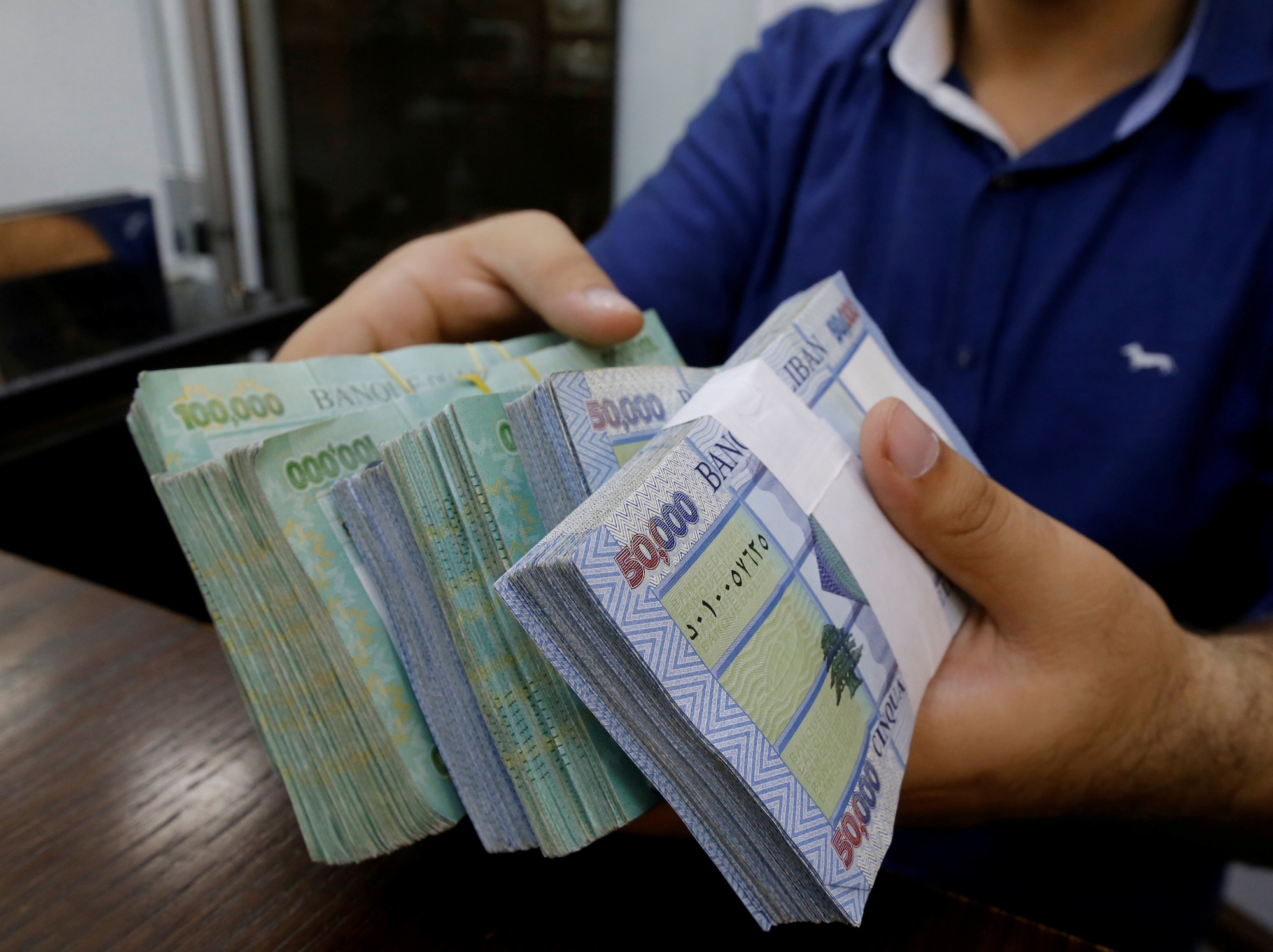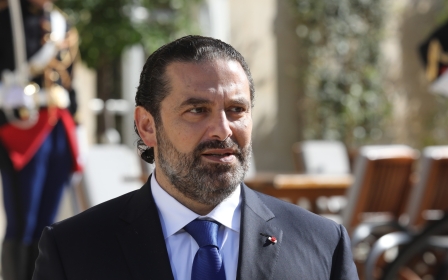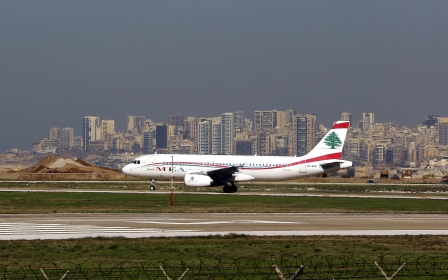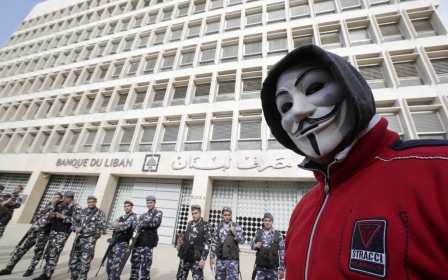Lebanese lawyers sue The Economist magazine over 'defamatory' article

A group of Lebanese lawyers has launched a legal case against The Economist magazine, accusing it of sullying Lebanon's reputation with a recent article on the country's economy.
Lebanon's official National News Agency reported that the lawyers had called for the magazine edition to be banned from circulation because it damaged "the reputation and financial standing" of Lebanon.
They also said the article's illustration of its famous cedar tree falling off the red and white background of the Lebanese flag shows contempt for both icons.
The Economist's article "Broke in Beirut" focused on the dollar shortages in Lebanon, which relies strongly on the US currency, and predicted that the country would struggle to find financial support among Gulf neighbours.
Faced with one of the world's highest debt burdens, low economic growth and crumbling infrastructure, Beirut has vowed to implement long-delayed reforms - though little has so far been done.
New MEE newsletter: Jerusalem Dispatch
Sign up to get the latest insights and analysis on Israel-Palestine, alongside Turkey Unpacked and other MEE newsletters
The country, which has a debt-to-GDP ratio of around 150 percent, is also seeking to reverse a sharp loss of confidence in the Lebanese pound. Its central bank has been drawing down its foreign exchange reserves to repay the state's maturing debt.
It also highlighted how credit rating agencies were considering downgrading Lebanon's already poorly performing status.
"As ever, the warlords and oligarchs who run Lebanon are busy bickering," The Economist article read, highlighting cabinet squabbling and a recent scandal about Prime Minister Saad Hariri giving $16m of his own money as a gift to a South African model.
Journalist Amer Shibani was also detained and questioned by authorities last week after he tweeted that he had been prevented from withdrawing US dollars at a bank.
A lawyer affiliated with President Michel Aoun's Free Patriotic Movement made a legal request to the general prosecutor to arrest, prosecute and penalise those producing "fabricated news... against the interests of the Lebanese state"; "slandering the Lebanese state and its president, fabricating claims... and influencing people to withdraw their funds".
Human rights organisations in Lebanon have slammed the lawyers' actions.
Aya Majzoub, a researcher at Human Rights Watch (HRW), described the government response as "a campaign of repression" against people expressing their concerns about the economic situation.
Majzoub added that it is silencing "healthy - and even necessary - public debate about issues that impact the majority of Lebanese citizens".
During a visit to the United Arab Emirates on Tuesday, Prime Minister Hariri said that aid and investment promised to Lebanon by regional allies would soon be delivered.
"We were promised financial assistance that will revive the Lebanese economy," Hariri said in comments to reporters in the Emirati capital, according to broadcasters al-Jadeed and MTV.
"Soon you will hear very excellent news, be it in the matter of investment or aid," he said.
Middle East Eye delivers independent and unrivalled coverage and analysis of the Middle East, North Africa and beyond. To learn more about republishing this content and the associated fees, please fill out this form. More about MEE can be found here.




